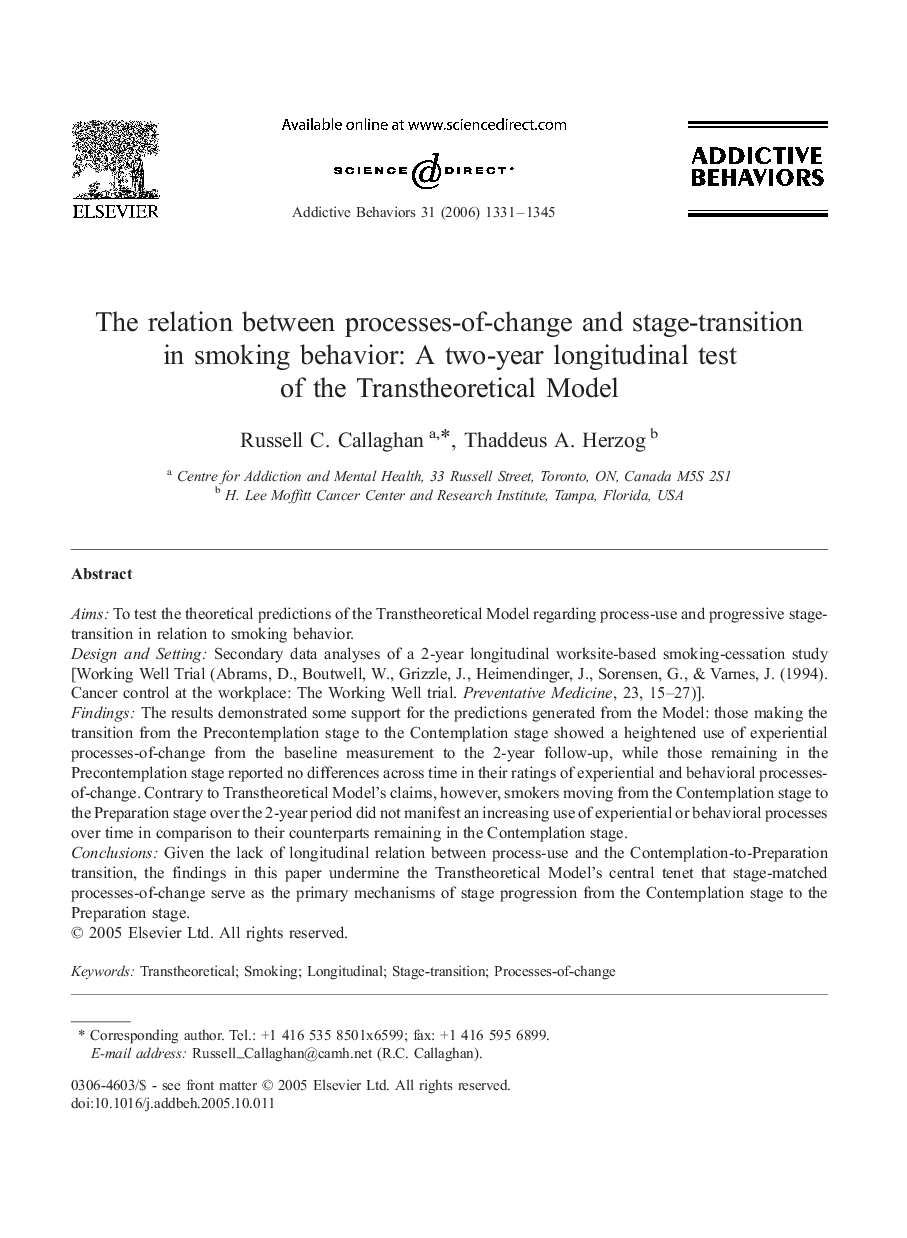| Article ID | Journal | Published Year | Pages | File Type |
|---|---|---|---|---|
| 900003 | Addictive Behaviors | 2006 | 15 Pages |
AimsTo test the theoretical predictions of the Transtheoretical Model regarding process-use and progressive stage-transition in relation to smoking behavior.Design and SettingSecondary data analyses of a 2-year longitudinal worksite-based smoking-cessation study [Working Well Trial (Abrams, D., Boutwell, W., Grizzle, J., Heimendinger, J., Sorensen, G., & Varnes, J. (1994). Cancer control at the workplace: The Working Well trial. Preventative Medicine, 23, 15–27)].FindingsThe results demonstrated some support for the predictions generated from the Model: those making the transition from the Precontemplation stage to the Contemplation stage showed a heightened use of experiential processes-of-change from the baseline measurement to the 2-year follow-up, while those remaining in the Precontemplation stage reported no differences across time in their ratings of experiential and behavioral processes-of-change. Contrary to Transtheoretical Model's claims, however, smokers moving from the Contemplation stage to the Preparation stage over the 2-year period did not manifest an increasing use of experiential or behavioral processes over time in comparison to their counterparts remaining in the Contemplation stage.ConclusionsGiven the lack of longitudinal relation between process-use and the Contemplation-to-Preparation transition, the findings in this paper undermine the Transtheoretical Model's central tenet that stage-matched processes-of-change serve as the primary mechanisms of stage progression from the Contemplation stage to the Preparation stage.
